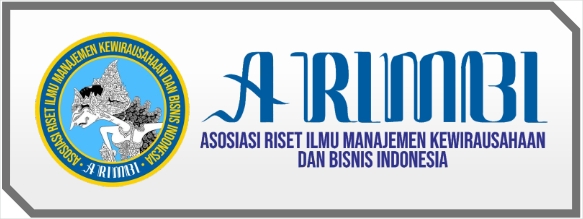Penerapan Laporan Keuangan Sesuai SAK Entitas Mikro Kecil Dan Menengah (Studi Kasus Pada Umkm Desa Giri Kec. Kebomas Kab.Gresik)
DOI:
https://doi.org/10.37832/manivest.v1i2.68Keywords:
Preparation of Financial Reports, SAK EMKMAbstract
MSME players should know how to prepare financial reports using the accounting records they have. For the purposes of preparing financial reports, MSME players must know the data needed and the procedures for implementing a financial recording system so as to produce adequate financial reports. This internal financial information is the final result of accounting records that are useful by management for business development. MSMEs only carry out very simple records. Recording is only carried out for business income transactions received and disbursed, while transactions for electricity costs, supplies and transactions related to company operations are not recorded. The researcher aims to provide direction to MSME leaders in reading financial reports and other information contained, by creating and presenting financial reports in accordance with SAK EMKM. The method used by the author is qualitative. Researchers used interview techniques that included questions and answers when collecting data with MSME actors, direct observation and data collection for recording financial reports, documentation and analysis.
References
D. W. Hadi, ‘KLHK Ajak Ibu Rumah Tangga Kelola Sampah Dari Sumbernya’, Jul. 26, 2018. [Online]. Available: http://ppid.menlhk.go.id/siaran_pers/browse/1382
A. Amagir, W. Groot, H. Maassen van den Brink, and A. Wilschut, ‘A Review Of Financial-Literacy Education Programs For Children And Adolescents’, Citizenship, Social and Economics Education, vol. 17, no. 1, pp. 56–80, Apr. 2018, doi: 10.1177/2047173417719555.
M. A. Hilgert and J. M. Hogarth, ‘Household Financial Management: The Connection Between Knowledge And Behavior’, Federal Reserve Bulletin, vol. 89, no. 7, pp. 309–322, 2003.
V. G. Perry and M. D. Morris, ‘Who Is in Control? The Role of Self-Perception, Knowledge, and Income in Explaining Consumer Financial Behavior’, Journal of Consumer Affairs, vol. 39, no. 2, pp. 299–313, Sep. 2005, doi: 10.1111/j.1745-6606.2005.00016.x.
A. Bandura, ‘Guide for Constructing Self-efficacy Scales’, in Self-Efficacy Beliefs of Adolescents, Information Age Publisher, 2005, pp. 307–337.
J. Hopkins and B. Farr, ‘UK Children and Young People’s Survey Financial Education in Schools’, London: Money and Pension Service, 2019. [Online]. Available: https://moneyandpensionsservice.org.uk/2020/01/21/uk-children-and-young-peoples-survey-financial-capability-2019/
D. A. Kolb, R. E. Boyatzis, and C. Mainemelis, ‘Experiential Learning Theory: Previous Research and New Directions’, NJ: Lawrence Erlbaum, 2000.
















